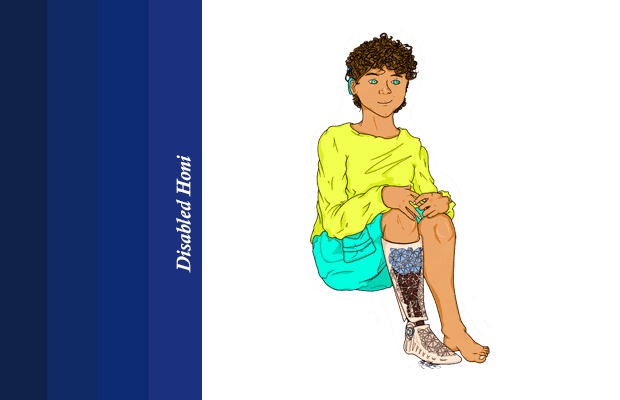It’s been nearly three years since I was diagnosed with Type 2 Bipolar. Although I had already undergone a program for Early Childhood Trauma and received a diagnosis of General Anxiety in my early teens, I admit to having distanced myself from the community of people with mental illness and at times I still struggle with this. However, with the difficult realisation that I was no longer just an ‘all or nothing kind of person’ came a feeling of solidarity with the many family members and friends who I knew also struggled with their mental health. Having grown up with a younger brother who has Cerebral Palsy and other family members or friends who had physical or learning disabilities, I saw my own disability simply as a variation of theirs. Some people use wheelchairs to help them function and I use medication. I drew strength from this sense of community.
In the past year on a number of occasions I realised that not everyone generalises their identification with the disabled community in this way. I would share content about accessible fashion and the invisibility of mental illness would be brought up. I would complain about my mental illness in a moment of frustration and I would be told that I should be grateful I wasn’t physically disabled. There were patterns to these conversations. People advocating for resources for schizophrenia are generally not accused of failing to advocate for resources of people with depression. The need for the provision of Auslan interpreters isn’t seen as negating the need for wheelchair accessibility. Those offended by Pauline Hanson’s comments about autistic children weren’t accused of not caring about the treatment of dyslexia in the education system. It seems that while the “families” of psychiatric, physical, sensory, and cognitive disabilities can draw together for strength and advocacy, these subcommunities don’t form a coherent “tribe”.
At first it seemed uncharitable to think that such segregation would not be imposed by outsiders to the community but rather come from disabled people, carers and advocates themselves. However, upon reflection I realised that I too had been guilty of interpreting the existence of another’s struggle as detracting from my own; of interpreting their long- withheld validation as my own isolation further-perpetuated.
The acceptance of others often presents itself like a rare and finite resource and I have often been found amidst the rubble, searching for a cure to my self- imposed stigma and in moments I’m not proud of, pushing others aside in case they steal it from me. I’ve since come to realise that is an internalisation of the rhetoric that tells us we should stop complaining because others have it worse. I hate being told this and I also hate the thought that I could be this person to other people.
It might seem too demanding to suggest that we identify not just with the “families” of disability that we are a part of but with the entire tribe. After all, our own subcommunities understand us best. Love for ourselves, our inner circle and our community already takes up most of our quota of love to give and leaves little room to include dissimilar people. To avoid wasting resources we curate which causes we advocate for and only invest time, energy and a listening ear into discourses we have a stake in. My own fight to accept my mental illness without involving self-loathing is precarious and incomplete: how can I share my sympathy with others when I can barely share it with myself?
While it’s true that sometimes self-care involves being selective with our emotional investments, when chasing after the spotlight to ensure it falls on our own disability comes at the expense of others, it becomes self-defeating. In The Second Sex (1949) Simone de Beauvoir argues that the diversity and sheer population of women has made it difficult for them to unite and revolt against oppressive forces that could otherwise be easily defeated. In the same way, I believe that when we treat psychiatric, physical, sensory, and cognitive disability advocacy as separate causes we minimise the size of our own army. If we joined forces it would be hard for anyone to argue that the concerns of disabled people are a niche concern.
Many if not all of the injustices disabled individuals experience are allowed to continue because our voices are perceived as the cries of a disgruntled minority. The majority don’t require plastic straws; the majority aren’t affected by a curriculum that doesn’t cater to cognitive disabilities; the majority aren’t offended by jokes at the expense of those with mental illness.
If we saw ourselves as part of a member of a network of individuals who are disabled in one way or another but diverse, beautiful and powerful in varying ways, our easily-ignored whisper would become a loud cry. Diversity should always be celebrated but we cannot continue to “divide and conquer” our own community. Let’s take advantage of our strength in numbers.
This article appeared in the autonomous Disabilities edition, Disabled Honi 2018.





